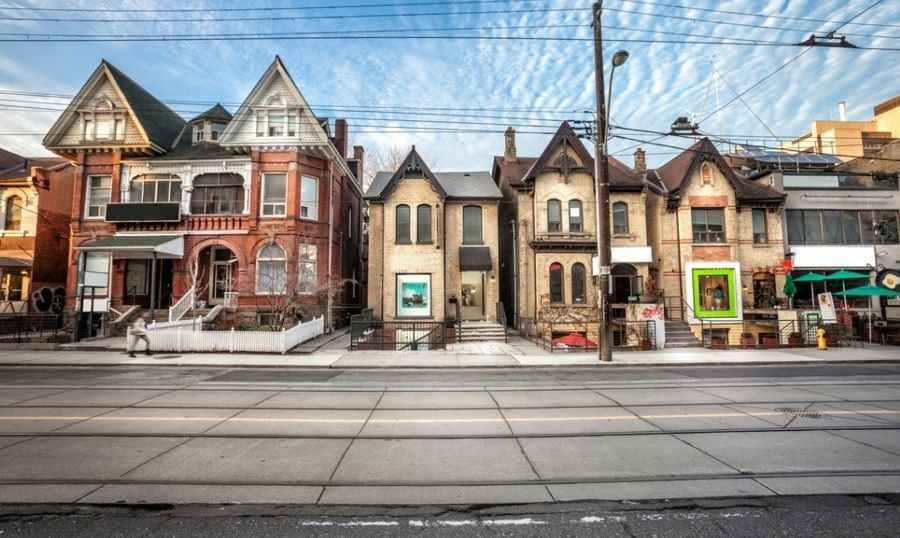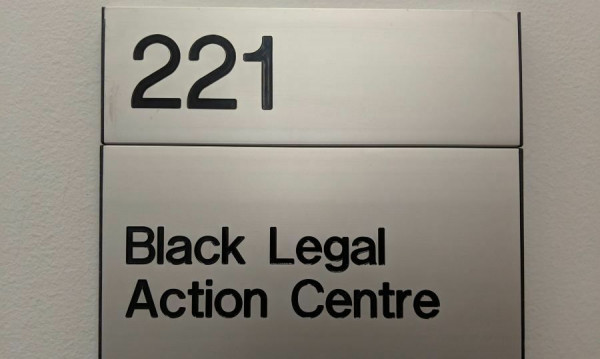Due to the racialization of poverty, many people who identify as Black or African Canadian are experiencing significant economic hardship, particularly with housing. We know that for many in our community, housing is the most significant expense and many will not be able to afford their rent today.
While this resource can be used by everyone, we have put together some legal, social and financial information specifically for Black tenants to support them during this time. The information below does not constitute legal advice If you require legal advice and you believe you are being discriminated against because you are Black, please contact BLAC at 1-877-736-9406 (toll-free), at 416-597-5831 or on our TTY Line (through Bell’s Relay Service): 1‐800‐855‐0511. You may also contact your local community legal clinic.
EVICTIONS
It is illegal for your landlord to evict you by themselves. You may only be evicted if there is a valid Eviction Order from the Landlord Tenant Board or a Court and only the Sherriff can execute the eviction. If a landlord issues you or tries to issue you an eviction notice, it is important for you to know that it cannot be enforced at this time. This is because the court (The Ontario Superior Court of Justice) has temporarily suspended all residential evictions, including eviction hearings.
If your landlord threatens to evict you, keep records of all calls and/or letters. Make notes as soon as anything happens and keep them.
If your landlord gives you an eviction notice and/or attempts to evict you without the Sherriff, you do not have to leave your home. Call the Rental Housing Enforcement Unit, a government office at 1-888-772-9277 (toll-free) or 416-585-7214. They might contact your landlord to discuss it.
Sometimes this can solve the problem. If that doesn’t work, contact BLAC or your local community legal clinic to get legal help right away. If your landlord tries to lock you out, cut off your utilities, throws out your belongings, or takes other physical steps to evict you, call the police. You can call BLAC if you require support to contact the police.
RENT
You cannot be forced out of your home at this time because of the provincial hold on evictions and eviction hearings. This is regardless of your rental agreement. You should be aware that this does not mean that your landlord won’t try to evict you. Contact BLAC if this happens. Municipal, provincial and federal leaders have said renters who have lost work due to COVID-19 should not have to worry about paying rent on April 1. They have called upon private landlords to help tenants who need to remain housed, but are unable to pay their rent, during these unprecedented times. While many provinces across the country have frozen rent increases, deferred late fees and offered renters a lump sum payment to assist with their rent, the government of Ontario has not officially announced any rent relief plan for April 1. For campaigns working to assist tenants and petitions calling for the cancellation of rent payments for April 1, go to torontotenants.org.
LANDLORD'S RIGHT TO ENTER
Your landlord has a right to enter your unit if they have followed the rules about proper notice and time of entry. If you have concerns about your landlord or their agent entering your unit during the COVID-19 outbreak, you should speak to them about your concerns. Especially if you are:
- self-isolating or quarantined,
- ill from the virus,
- concerned that people coming into your space could spread infection, or
- you want to follow public health recommendations about “social distancing”.
If your landlord or their agent still wants to enter your unit and you’re not satisfied that they are being careful or applying the appropriate sanitary practices, you might decide not to let them in. Please seek legal advice before using the letter to ensure you're not at risk of eviction for denying your landlord entry. You can call BLAC for advice.
UTILITIES
If your rent is not inclusive of utilities, you may be wondering about programs in place to assist you in paying for your utilities. Effective March 24, 2020, the provincial government suspended time-of-use rates for residential customers, holding electricity prices at the off-peak rate for the next 45 days. However, this means if you pay a “tiered rate” or a fixed amount based on how much energy you consume, you will not qualify for this new advantage.
The Ontario Energy Board has prohibited all electricity distributors from disconnecting power because of non-payment until at least July 31, 2020. Providers may continue to issue late notices to customers who fall behind, but they should not send disconnection notices during this prohibition period.
If you live in an apartment building or condominium, you likely have a sub-meter that is used to measure consumption of each individual unit in a multi-residential building. If you pay a sub-metering company for your electricity, and you are unable to pay your bill, these companies have decided not to cut off electricity until July 31, 2020.
If you are having trouble paying your electricity bill contact your electricity provider immediately and notify them of your current financial situation.
Apply for the Ontario Electricity Support Program (ontarioelectricitysupport.ca), and/or the Low Income Energy Assistance Program (oeb.ca).
The Black Legal Action Centre (BLAC) is a not-for-profit corporation incorporated under the laws of Ontario. BLAC was created to combat individual and systemic anti-Black racism by providing legal services to low and no income Ontarians that identify as Black or African Canadian. BLAC’s service areas include housing, income maintenance, social assistance, human rights, police complaints, employment and education. BLAC also engages in test case litigation, law reform and community development. We deliver summary legal advice, brief services, and public legal education.

 By
By 









